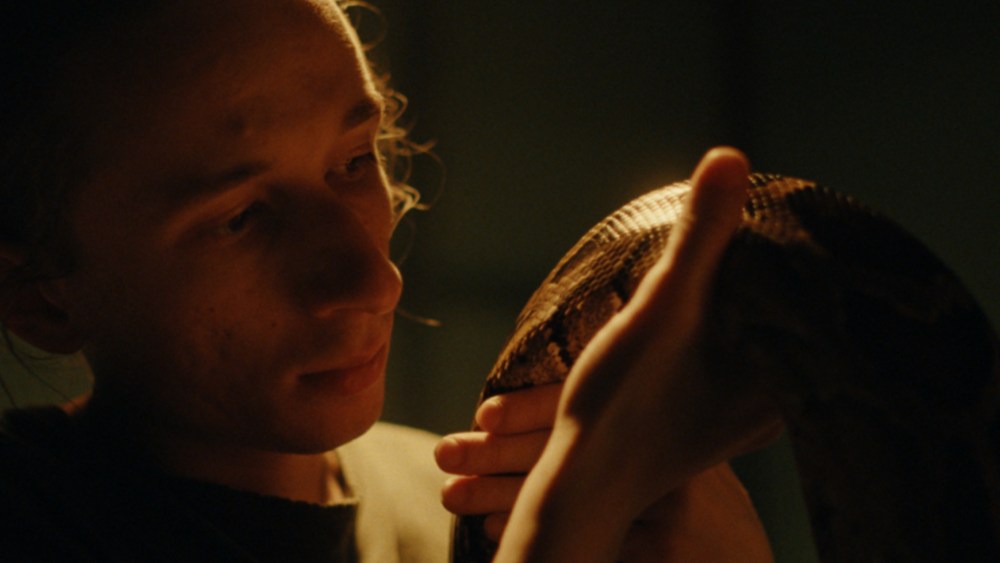Hungarian filmmaker Dorka Vermes, whose debut feature “Árni” was nominated for a Queer Lion Award at the 2023 Venice Film Festival, is developing her sophomore effort, “Places Half Empty,” a film that’s billed as a controversial and intimate portrait of a queer relationship in the context of Viktor Orbán’s Hungary.
The film, which won the Eurimages Co-Production Development Award this week at the Sarajevo Film Festival’s CineLink industry strand, follows Noá, an independent but struggling thirtysomething working as an illegal cab driver. One night she picks up an affluent young suburban woman, Juli, who is desperately trying to break free of her overbearing family.
The two women quickly fall in love, but a range of circumstances — from growing financial stress to societal pressure to the expectations of Juli’s controlling family — complicate their romance. “Places Half Empty” poses the question of how to find one’s place in a society that offers no room to be different.
Speaking to Variety in Sarajevo, Vermes described the film as a “close-up of an intimate relationship” drawn from her own personal experiences and from her interest in “the subtle, everyday gestures that normalize exclusion.”
“The Hungarian context is not just a backdrop, but a structuring force: shaping choices, movement, speech,” she said. “This is not a film ‘about queerness,’ but an inquiry into how space and politics shape the very conditions of love.”
Directed by Vermes and written by Sára Törley-Havas, “Places Half Empty” is produced by Evelyn Balogh and Botond Lelkes for Budapest-based Non Lieu Film Productions, which takes its name from the French phrase for “non-place.” Lelkes, who founded the company in 2022, said the expression “represents our current situation,” with Hungarian filmmakers working in the places that are “in-between” and “non-existent.”
Lelkes launched the production outfit after the Hungarian government placed control of Budapest’s University of Theater and Film Arts — known by its Hungarian acronym, SZFE — into the hands of Orbán loyalists. That controversial decision sparked a movement among young filmmakers and artists who “wanted to continue the values and the legacy of the old institution,” according to Balogh.
Lelkes and Vermes were among the students who occupied university buildings and resisted the government takeover. That, in turn, led to the creation of the FreeSZFE Society, an association designed to support artistic freedom in a country where it’s increasingly under threat. The association was the first funding body to support “Places Half Empty,” which the filmmakers plan to finance independently.
That’s part of a growing trend in Hungary, where critics say the influence of the repressive Orbán regime has impacted funding decisions at the state-backed National Film Institute, which controls the purse strings for the local industry. Recent films such as Gábor Reisz’s Venice premiere “Explanation for Everything” and Bálint Szimler’s “Lesson Learned,” which bowed in Locarno, became festival breakouts despite being financed without government support.
Balogh credits the determination of a generation of filmmakers who refuse to “complain about money” with bolstering this new wave of Magyar movies. “The destruction of the institution and its values created such a void that the people who were there at the time felt the need to [respond],” she said. “To stick together, create, think outside the box, try to find other ways [to make movies].”
Despite the heavy political context in which they’re launching their film, Lelkes insists that “Places Half Empty” is “not just about the struggle of the Hungarian people,” describing the film as an “absurd melodrama” stocked with “interesting” characters and oddities, such as Juli’s family business raising chihuahuas. Vermes’ longtime mentor Béla Tarr, who served as creative producer on her debut, “Árni” (pictured), will join forces with the filmmaker once again, this time as executive producer.
Sarajevo’s CineLink Industry Days marked the first time the filmmakers presented “Places Half Empty” to an industry audience, and on the strength of its award-winning debut, Balogh saw the event as a rousing success.
“We had a great chance to connect with producers, sales agents and all kinds of industry professionals who were interested in our story and wanted to help us try to untangle this situation that we are in,” she said. Despite the challenges they face, she added, Hungarian filmmakers want to remind the world: “We are here.”
The Sarajevo Film Festival runs Aug. 15 – 22.

